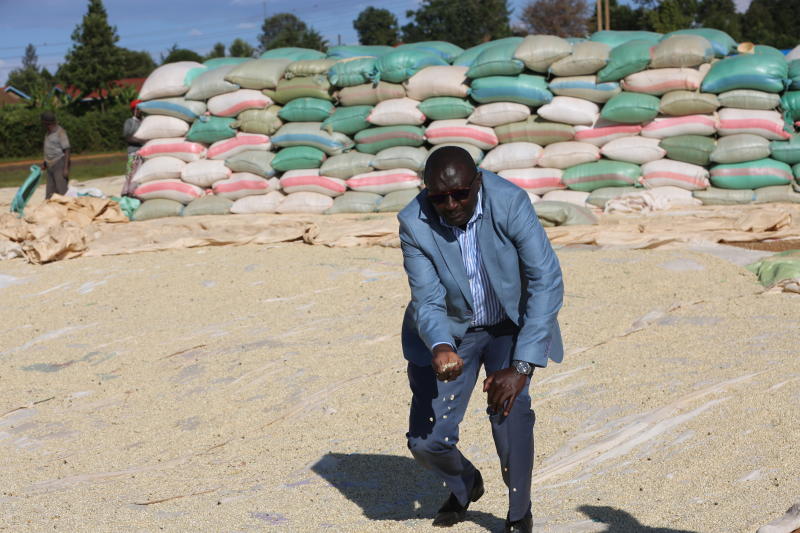×
The Standard e-Paper
Join Thousands Daily

Agriculture Parliamentary Committee Chairman Silas Tiren inpects dry maize near the Kipchoge Stadium after attending farmers meeting in Eldoret yesterday. [Peter Ochieng, Standard]
The National Cereals and Produce Board (NCPB) has opened its doors for the purchase of current season maize harvests across the country.